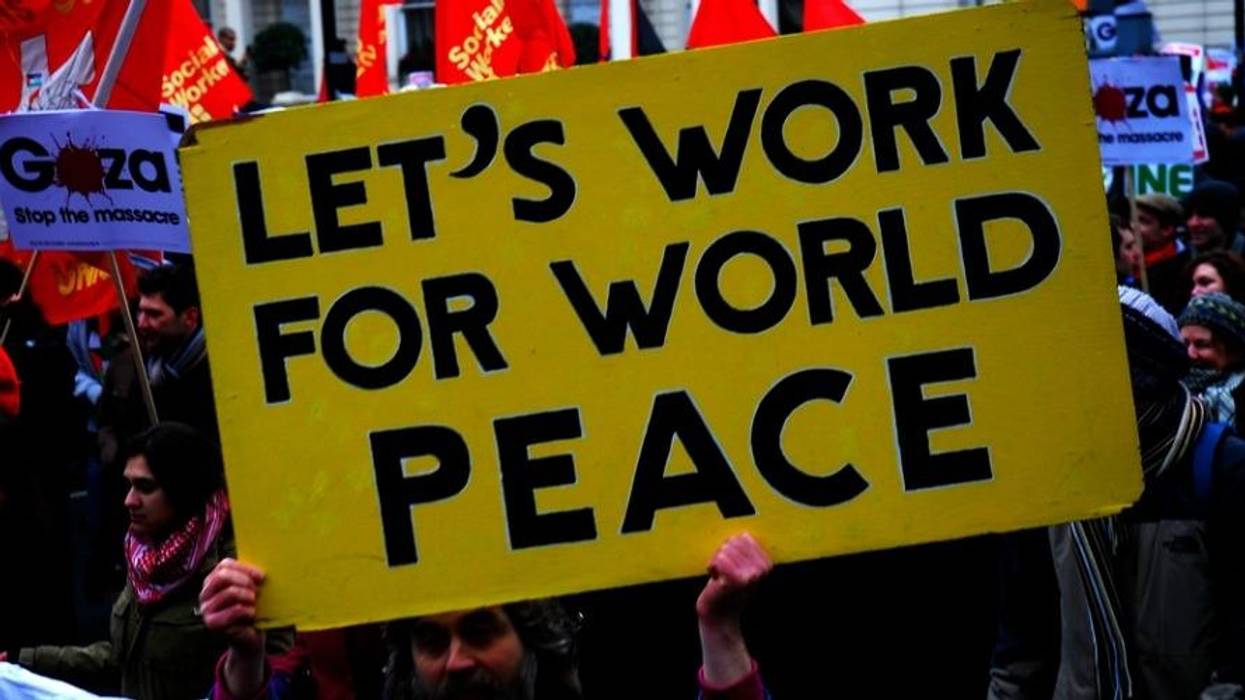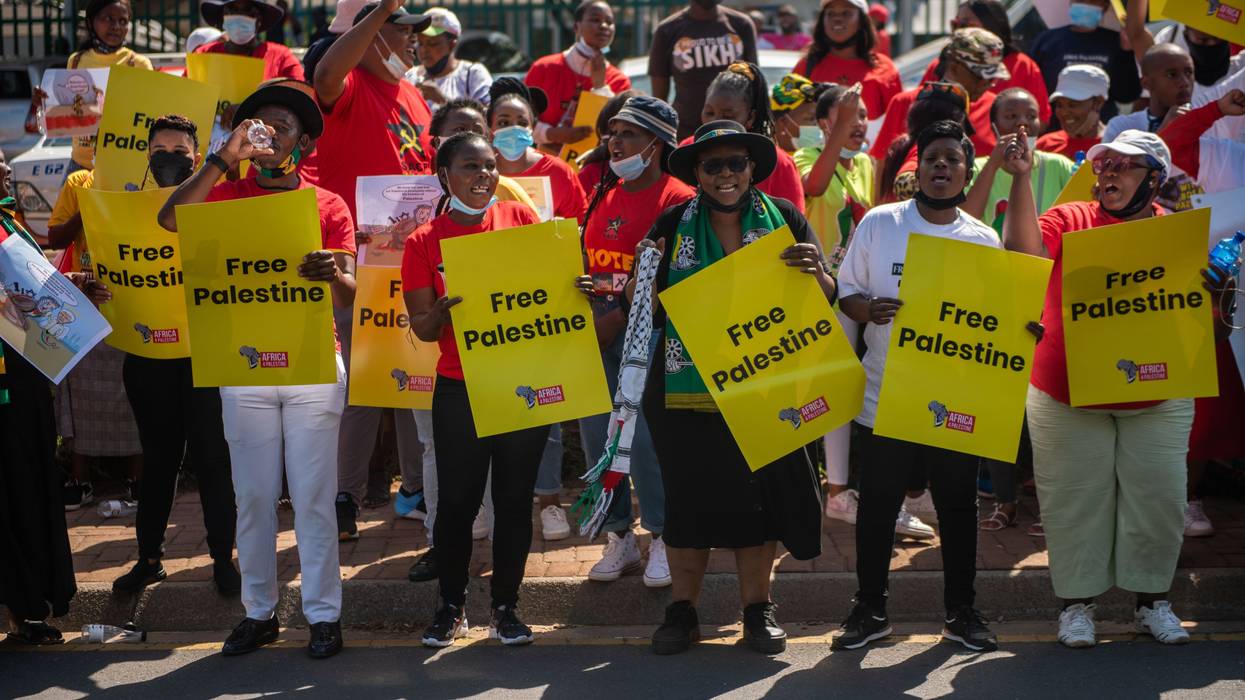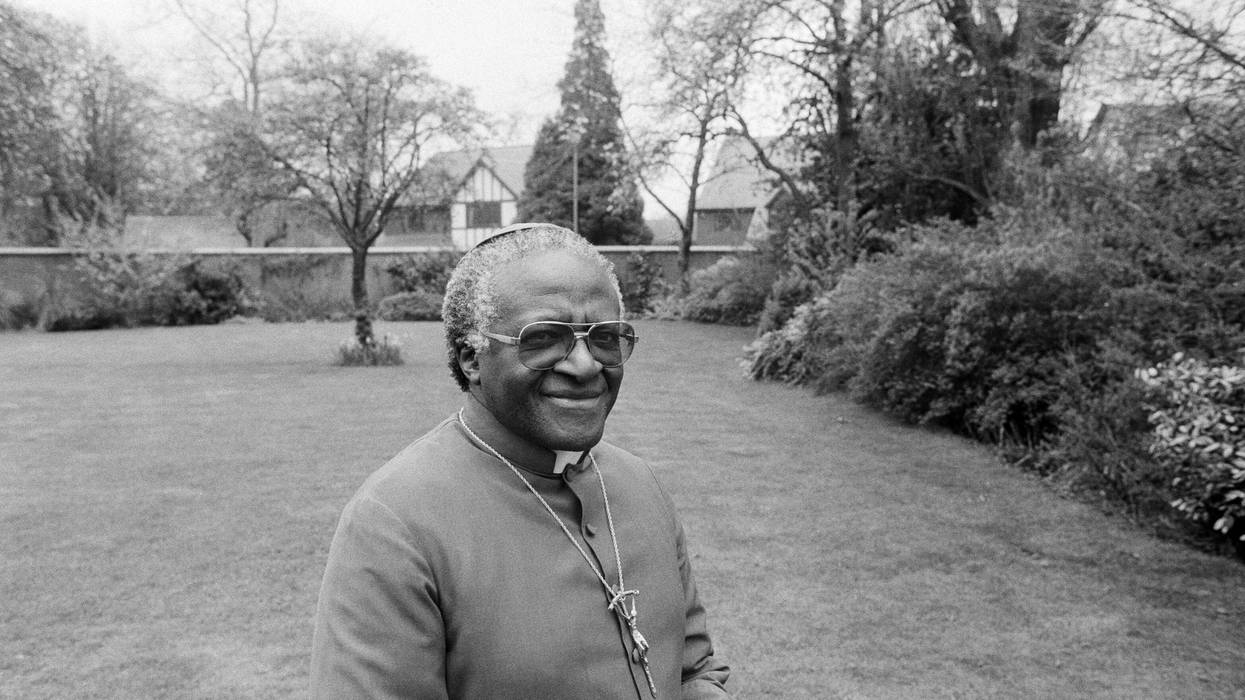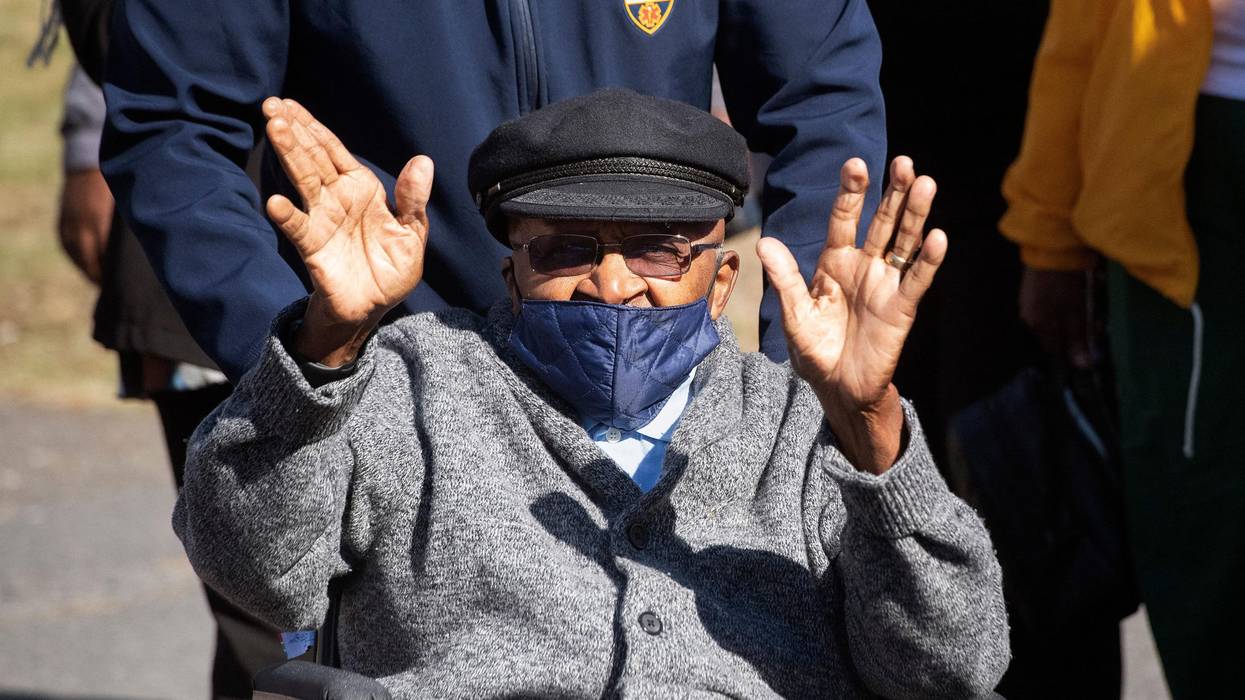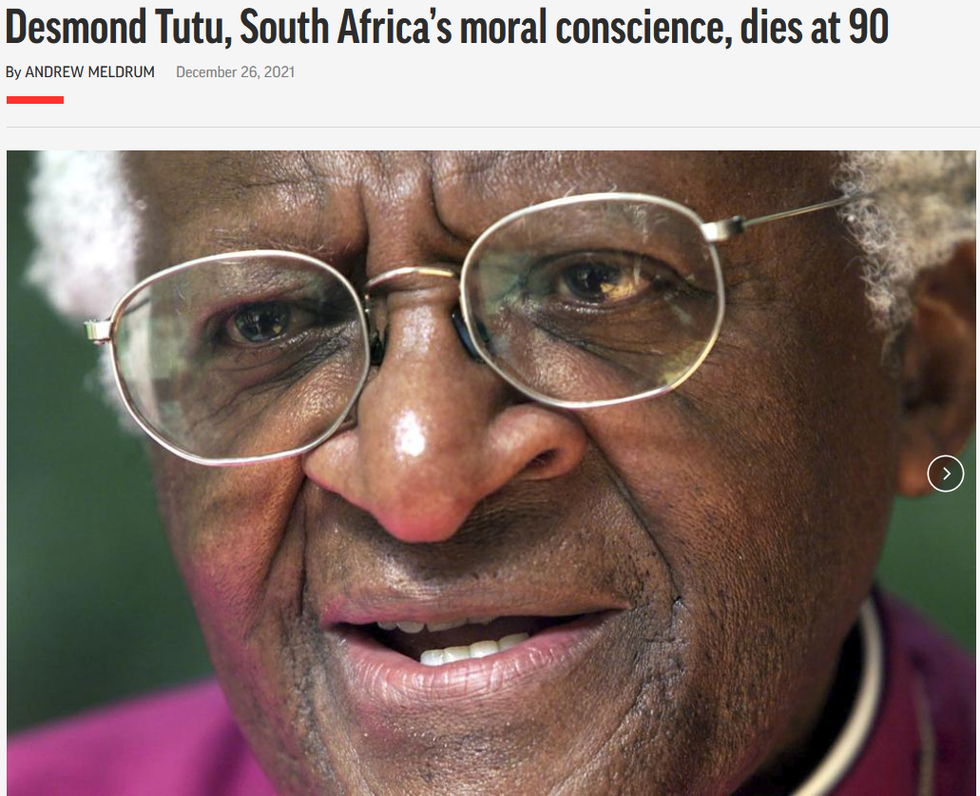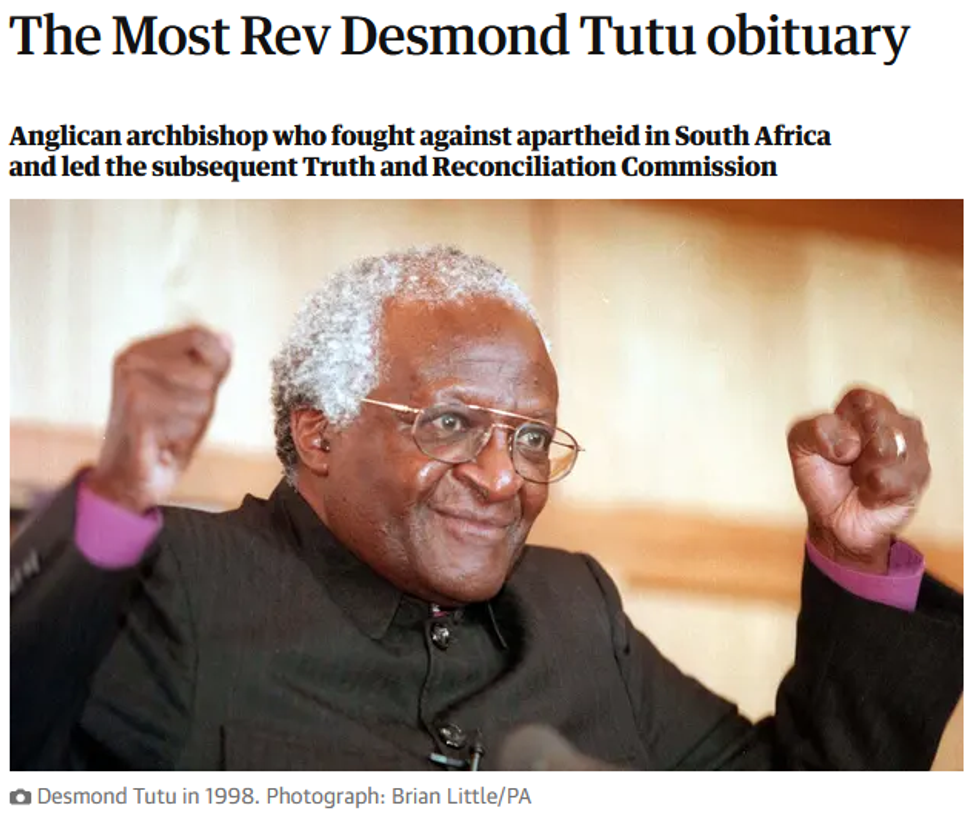Peace Is Just as Possible as War
On International Peace Day this September 21, imagine an unstoppable wave of peace actions sweeping across our country.
I am heartened each time I come across a study affirming that waging war is not an innate part of human nature, that we humans are just as likely to be peaceful as we are to be violent. To quote the revered anthropologist Margaret Mead, “warfare is only an invention—not a biological necessity.”
And why do I cherish findings by historians, anthropologists, psychologists, and others that we are not doomed inevitably to human conflict; that, in the words of President John F. Kennedy “our problems are man-made—therefore, they can be solved by man.”
In my lifetime, there has been barely a year that my government has not been at war overtly or covertly. By some calculations the United States has been involved in more than 100 wars since 1776—early on with Native Americans to steal their land, claim their natural resources, and imprison them on reservations. Between 1945 and 1989 the U.S. attempted to change other (many democratic) countries’ governments overtly and covertly 72 times. More than 4.5 million people have died in the more than two decades of post-9/11 U.S. wars in Afghanistan, Iraq, Yemen, Syria, and Libya.
Recent landmark research by Erica Chenoweth and Maria Stephan of movements from 1900 through 2006 to overthrow dictatorships, expel foreign occupations, or achieve self-determination reveal that nonviolent resistance campaigns were more than twice as successful as violent insurrections with the same goals.
But war is relatively new in the more than 200,000-year history of us homo sapiens: Evidence of war dates back to 10-12,000 years ago, especially with the emergence of more settled communities. Further, societies that were once extremely warlike are now peaceful: the countries of Scandinavia, for example, and the tribes of the Iroquois from around 1600. Ireland, Austria, and Switzerland are neutral Western European countries, not members of NATO; and Costa Rica has eliminated its military in a hemispheric region where conflict has been rife. All undercut the notion of war being a deeply ingrained, inevitable biological behavior
Moreover, experts who have studied the history of violent and non-violent responses to conflict have found that violence is not the most effective nor successful way to resolve country-level disputes. Recent landmark research by Erica Chenoweth and Maria Stephan of movements from 1900 through 2006 to overthrow dictatorships, expel foreign occupations, or achieve self-determination reveal that nonviolent resistance campaigns were more than twice as successful as violent insurrections with the same goals. Elsewhere Chenoweth found that when women have leadership roles, they are “more likely to maintain nonviolent discipline… in resistance campaigns against repressive regimes.”
Especially uplifting, too, are the multitudinous creative individuals and movements in recent decades at work for peace in their countries. In 2005, 1,000 outstanding women peacemakers from 150 countries were nominated for the Nobel Peace Prize. Why 1,000 women? Because “creating peace requires a culture of peace practiced by millions in our daily life,” explained their Nobel prize sponsors. Their slogan, “I am not a wall that divides—I am a crack in that wall” conjures up the lyrics of singer/songwriter Leonard Cohen: “There are cracks in everything/that’s how the light gets in.”
A final piece of wisdom about the necessity of sustaining peace following violent conflict comes from Liberian Nobel Peace Prize winner Leymah Gbowee, who brought Christian and Muslim women together in her West African country to end Liberia’s brutal 14-year-long civil war in 2003. According to Gbowee, “Stopping a war does not bring lasting peace.” Peace persists through peacebuilding, using community organizing and expressing dissent; teaching peace and nonviolence; and prioritizing the basic issues of women’s, racial and social equality, and environmental protection.
Few of us have imagined forgiveness as a crucial element of peace that can enable peace to endure. In 1995, Archbishop Desmond Tutu and Nelson Mandela, who had spent 27 years as a political prisoner before emerging as South Africa’s first Black president, called for a Truth and Reconciliation Commission that offered amnesty to “those responsible for atrocities during the long nightmare of white-minority rule,” provided they publicly confess all the brutalities they had committed and request amnesty. The Commission intended to refrain from revenge and to reconcile the peoples of a deeply unjust, deeply racist society in order to inaugurate social healing that would last. Knowing that forgiveness would not assure perfect justice for all, Desmond Tutu realistically stated that simply punishing their oppressors with prison sentences may have resulted in a civil war ending with “a South Africa lying in ashes.”
There were shortcomings, though. Some of the worst unrepentant war criminals escaped prosecution; some citizens grievously harmed by apartheid citizens felt that amnesty was too easily given; and the country is still ridden with vast inequities. Elsewhere, others believe that peace without accountability for violence is a peace without justice, including Gbowee and other advocating for a war crimes court to ensure accountability for Liberian war criminals.
On International Peace Day this September 21, imagine an unstoppable wave of peace actions sweeping across our country, like that of the first Earth Day, April 22, 1970. That day Congress closed so its members could attend environmental teach-ins; 20 million citizens and politicians (one-fifth of the population) came out for marches, rallies, and concerts; and 10 million children participated in peace teach-ins in their schools. A surge of environmental legislation and the creation of the U.S. Environmental Protection Agency by President Richard Nixon followed in the next years.
May we be part of finding our country’s lost path to peace: by peace education and active bystander programs in every school; by interracial and interfaith collaborations; by reparations for the historical injustices of slavery and theft of land from Native Americans; by ensuring women’s full equality, including restoring women’s reproductive rights; by beating warheads into windmills through shifting our government’s priorities from militarism to renewable technologies; and by demanding that our lawmakers have a real democratic debate on war, peace, and the military budget.
As Eleanor Roosevelt asked, “When will our conscience grow so tender that we will act to prevent human misery rather than avenge it?”
